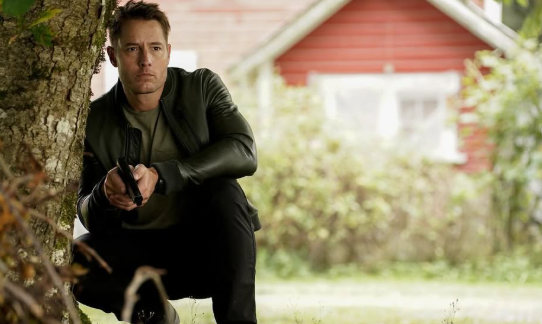
American television has always had a fascination with the “lone wolf” figure—someone self-reliant, morally driven, and just distant enough to remain mysterious. From cowboys on the frontier to solitary detectives in noir thrillers, this archetype has endured. But in Tracker, CBS brings something fresh to the trope with Colter Shaw—a man who is part tracker, part philosopher, and entirely unlike anyone else on TV today.
This article explores how Tracker reimagines the modern American hero through the character of Colter Shaw, and how it breaks away from outdated clichés while preserving what made the archetype so powerful in the first place.
A Hero With Depth, Not Just Direction
Colter Shaw isn’t just a drifter with a purpose—he’s a man wrestling with deep inner conflicts, shaped by a traumatic upbringing and the constant need to prove that he’s not broken. He doesn’t carry a badge or follow orders. Instead, he follows leads, logic, and a personal code that is shaped as much by empathy as by justice.
Unlike traditional TV heroes who lean into stoicism, Colter shows emotional intelligence. He listens. He pauses. He reflects. This slower, more thoughtful pacing adds texture to his heroism—it’s not about brute strength or gunfire, but about making the right decision in morally grey situations.
The Evolution of Masculinity on Screen

Tracker subtly critiques outdated notions of masculinity. Colter doesn’t see vulnerability as a weakness. He admits when he’s uncertain, he expresses concern, and he values emotional connection, even if he maintains some distance.
In one episode, he comforts a grieving father not with grand gestures but with silence and presence. In another, he opens up about his own father’s mental illness—not to elicit pity, but to help others feel seen. His quiet strength is the antithesis of toxic masculinity.
By portraying Colter as emotionally layered, Tracker is helping reshape what male strength looks like on network television.
Rooted in the Real World
What sets Tracker apart is how grounded it feels. Colter isn’t some superhero with infinite resources. He’s constantly running into real-world constraints: financial limitations, ethical dilemmas, the unpredictability of human behavior.
He gets things wrong. He sometimes makes people angry. But the show doesn’t treat these failures as weaknesses—it frames them as learning moments, making Colter feel more real and relatable than most heroes on television.
A Hero for the People, Not the System
Another way Tracker flips the script is in Colter’s relationship with institutions. He’s not a cop. He’s not a bounty hunter in the traditional sense. He operates on the edges of law, which allows the show to explore a wider range of stories.
Colter works for the families, not the system. He’s not interested in pleasing authorities or chasing glory. He simply wants answers, and in a media landscape full of procedurals driven by bureaucracy, Tracker is a refreshing outlier.
The Road as a Metaphor for Healing
Colter’s life on the road isn’t just a setting—it’s a metaphor for his internal journey. Each town, each case, and each encounter pushes him further along a path of healing from his fractured past. And yet, no matter how far he travels, his past is always in the rearview mirror, just close enough to haunt him.
This sense of perpetual motion reflects the American ideal of reinvention—but Tracker reminds us that you can’t reinvent yourself without first facing what broke you.
Conclusion
In Tracker, the “lone wolf” becomes something more: a symbol of compassion, introspection, and moral complexity. Colter Shaw is a modern hero for a fractured world—imperfect, deeply human, and driven not by ego but by empathy.
By blending traditional adventure storytelling with emotional depth and psychological nuance, Tracker offers a hero that feels both timeless and urgently relevant.
